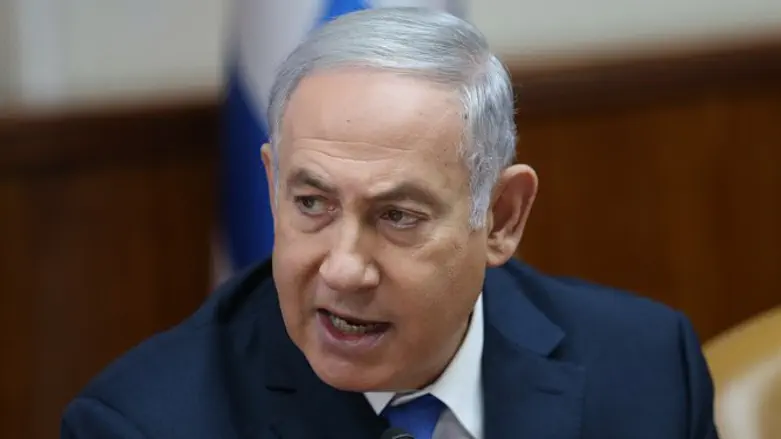
Prime Minister Binyamin Netanyahu said on Monday he sees a path to peace with Palestinian Arabs through the "normalization" of relations with Arab states which, like his country, are also facing an emboldened Iran.
"Many Arab countries now see Israel not as their enemy but as their indispensable ally in pushing back Iranian aggression," Netanyahu said in an interview with Lithuania's LRT public broadcaster which aired on Monday and was quoted by AFP.
"This has created normalization which can lead to peace. I believe that if we have peace with the broader Arab world, it will help us get to peace with the Palestinians," he added in the interview, which was taped during his visit to Lithuania which concluded on Sunday.
Israel has peace treaties with just two Arab countries, Egypt and Jordan, while others insist on an agreement with the Palestinian Authority (PA) as a prerequisite that would pave the way to formal relations.
However, reports in recent years have indicated that Israel and Saudi Arabia are getting closer.
One report claimed the Saudi government is weighing the possible normalization of relations with Israel ahead of a planned Middle East peace program by the Trump administration which aims to not only secure a final status agreement between Israel and the PA, but lead to recognition of the Jewish state by the larger Arab world.
Saudi officials have repeatedly denied any ties with Israel, insisting that Israel must accept the so-called Saudi peace plan in order for the two countries to enjoy close ties.
Saudi King Salman recently reaffirmed "steadfast" support for the Palestinian Arab cause after Crown Prince Mohammed bin Salman signalled a shift in the country's approach.
Prince Mohammed in April said in a magazine interview that Israelis, as well as Palestinian Arabs, "have the right to have their own land".
Both Israel and Saudi Arabia have opposed the Iran nuclear deal and pushed for tougher action against Iran's spreading influence in the Middle East.
During the negotiations between Iran and world powers, Saudi Arabia and other major Sunni states expressed concern over a deal which would allow Iran to produce nuclear weapons.
Ultimately, Saudi Arabia's government announced that it welcomed the deal, though it later said it agreed with Trump’s assessment that the deal is flawed.